One unintended but very important consequence of the Iran nuclear deal has been to aggravate and intensify Saudi Arabia’s concerns about Iran’s regional goals and intentions. This fueling of Saudi fears has in turn fanned sectarian tensions in the region to unprecedented levels.
Of course stoking Saudi angst and perhaps even paranoia was not the intention of the deal’s negotiators. They sought to reduce tensions and prevent a nuclear arms race. A combination of circumstances outside their control exacerbated the problem of Saudi-Iranian rivalry that dates back before the Iranian revolution. But the results are likely to haunt the region for years to come.
An array of worries
Riyadh’s concerns about Iran have never been primarily focused on the nuclear danger. The Saudis have long calculated the risk of Iranian use of nuclear weapons as low. They also believe the American nuclear umbrella protects them. The key Saudi concern is their belief that Iran seeks regional hegemony and uses terrorism and subversion to achieve it.
The deal deliberately does not deal with this issue. In Saudi eyes it actually makes the situation worse, because lifting sanctions removed Iran’s isolation as a rogue state and gives it more income. Iran’s ambition to be the region’s hegemon is fueled not reduced by the deal.
The debate over the deal that ended a year ago coincided with two key developments in the Kingdom in early 2015. First was the succession of King Salman Abd al Aziz. His predecessor and half-brother Abdullah was a hardliner on Iran, but he was also risk-averse and cautious by nature. He had experimented with detente with Iran in the 1980s, even sending a Saudi Shiite as ambassador to Tehran. He wanted American soldiers to deal with Iran, not Saudis, a posture that greatly irritated Americans like former Secretary of Defense Bob Gates who likened it to using his soldiers as mercenaries. King Abdullah sought to avoid confrontation not embrace it.
The second coincidence was the takeover of the Yemeni capital Sanaa by the alliance of Zaydi Shiite Houthi rebels and former President Ali Abdullah Saleh early last year. The rebels opened direct air links to Tehran and proposed other concessions to Iran. They marched on the southern port of Aden, Sunni territory. Iran hailed their victories. The Saudis and other Gulf states saw an Iranian foothold emerging in the Achilles heel of the Arabian Peninsula.
The new king and his young Defense Minister Prince Muhammad bin Salman reacted angrily and firmly. An Arab coalition was created rapidly to intervene and fight the rebels. The result, Operation Decisive Storm, was distinctly unlike anything in recent Saudi history. Bold and aggressive in design, it stopped the rebels’ advance and prevented any Iranian intrusion into Yemen—but it also created a humanitarian disaster and a bloody stalemate. The United States and United Kingdom, eager to quiet Saudi objections to the nuclear deal, provided crucial support to the Saudi war. Pakistan, a longtime ally with a large Shiite minority, voted unanimously in parliament to stay out because it was worried about intensified sectarianism.
A year ago Saudi intelligence renditioned Ahmed Mughassil after he debarked from a flight from Tehran to Beirut. The Saudi Shiite Mughassil was the mastermind of the Khobar attack twenty years ago in Saudi Arabia that killed nineteen American airmen. He was also involved in the assassination of several Saudi diplomats in the 1980s. He is the epitome of Iranian support and direction of terror. No doubt his interrogation has underscored Saudi concern about Iran’s clandestine actions in the Gulf.
In January this year, the Saudis executed a prominent Shite dissident for allegedly supporting terrorism. An Iranian mob attacked the Saudi embassy—probably encouraged by regime hardliners—and then the Saudis broke diplomatic relations. Since then, Riyadh has encouraged its allies to follow suit. Iranian pilgrims will not attend this year’s Hajj.
Saudi concern about Iranian conspiracies is reaching new heights. At least one prominent Saudi commentator has argued the terrorist attack on the Prophet’s Mosque in Medina on July 4th was a false flag operation controlled by Iranian intelligence to discredit the king’s standing as the Custodian of the Two Holy Mosques. His column is getting wide attention.
Former intelligence chief and Ambassador to the United States Prince Turki al Faysal last weekend attended a large demonstration in France sponsored by the Mujahideen e Khalq group and called for the regime to be overthrown. Turki’s backing for the MeK and his open call for regime change escalates the rivalry even further.
Entrenched position?
The combination of a new leadership in Riyadh that is more prepared to take firm action and the crisis in Yemen have added to Saudi disagreement over the Iran deal. As the Pakistanis feared, it has polarized an already deeply divided Muslim world. The Islamic State and al-Qaida benefit from the Muslim Cold War and the escalating sectarian violence.
Washington has tried hard to reassure the Saudis that they are not alone in their legitimate concerns about Iran’s terrorist activities and destabilizing subversion. President Obama has wisely sought to build confidence with the king and his young son. The Iran deal is a good one, and I’ve supported it from its inception.
But it has had consequences that are dangerous and alarming. In the end, Riyadh and Tehran are the only players who can deescalate the situation. The Saudis show no sign of interest in that road.
The Brookings Institution is committed to quality, independence, and impact.
We are supported by a diverse array of funders. In line with our values and policies, each Brookings publication represents the sole views of its author(s).

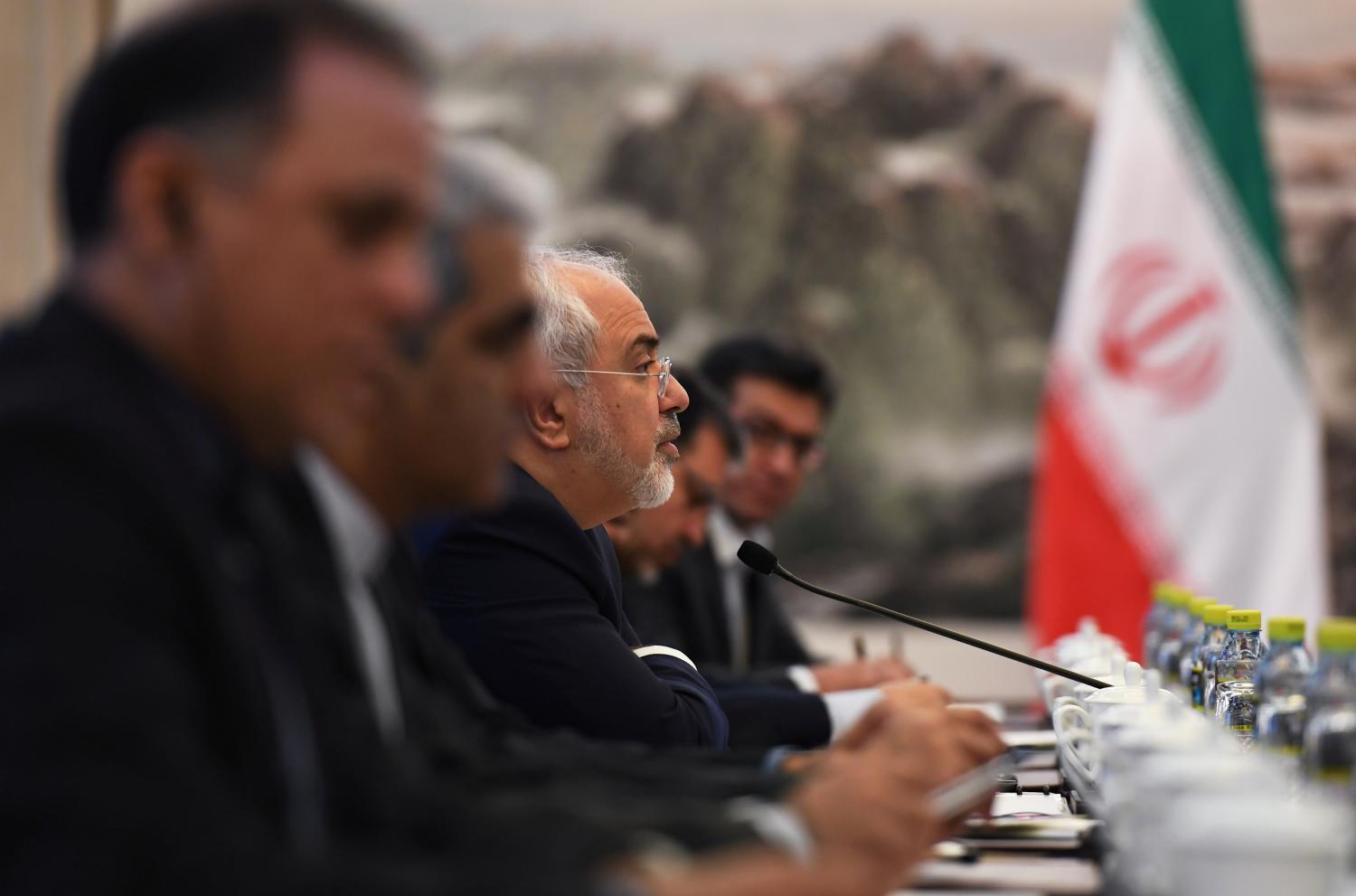
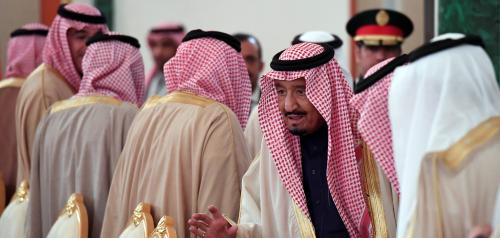
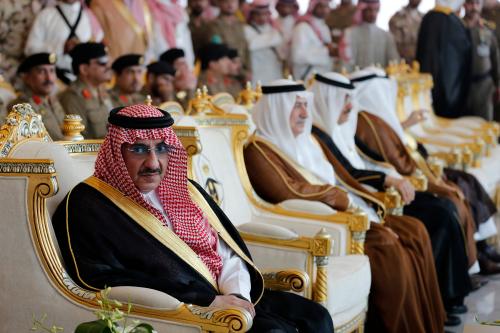
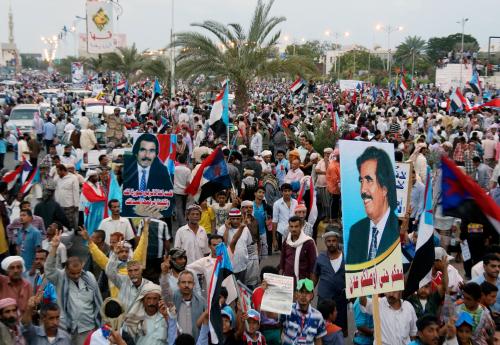
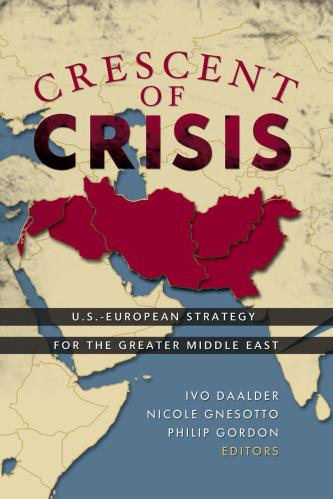
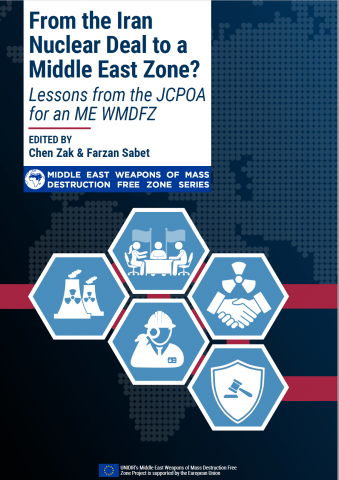





Commentary
What the Iran deal has meant for Saudi Arabia and regional tensions
July 13, 2016